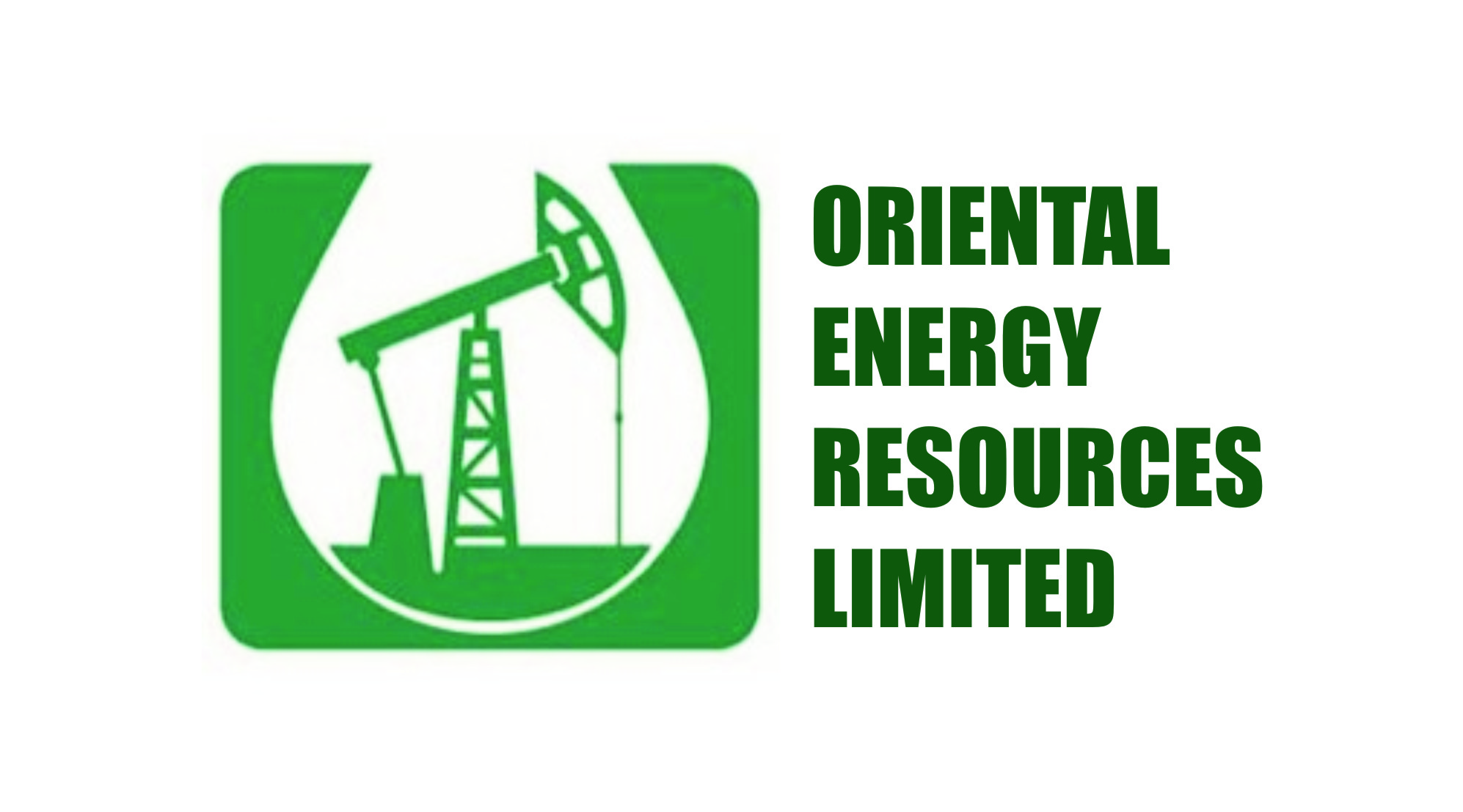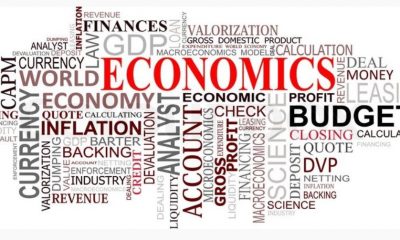Oil & Energy
Court Restores Abigborodo, Hely Creek Fields To Transnational Energy

A Federal High Court in Abuja has set aside the purported reversal of the consent given by the Federal Government for the farm-out agreement between Chevron and Transnational Energy Limited (TEL) on the Abigborodo and Hely Creeks marginal fields in the Oil Mining Lease (OML) 49.
The court, in a judgment by Justice Taiwo Taiwo, upheld the plaintiffs’ claims and granted all the reliefs sought, including an award of $20million in damages against the defendants, who are all Federal Government’s agents.
The judgment was on a suit, marked: FHC/ABJ/CS/1067/2020, filed by Transnational Energy Limited (TEL) and Bresson A. S. Nigeria Limited.
Defendants were Minister of Petroleum Resources, Minister of State, Petroleum Resources, Department of Petroleum Resources, National Petroleum Investment and Management Services (NAPIMS) and the Attorney General of the Federation.
The plaintiffs, through their lawyer, Dr. Sijuade Kayode, claimed that a farm-out agreement over the two marginal fields was concluded between TEL and the joint venture operators, Chevron Nigeria Limited in 2017 for amongst others purposes, to provide feedstock to a gas-to-power project developed by TEL and its partners, which started in 2012.
They stated that the Department of Petroleum Resources (DPR), in a letter dated 20th February, 2017, conveyed a letter of ministerial consent by the Minister of Petroleum Resources approving the farm-out and its terms.
The plaintiffs added that the DPR, in its said letter, equally directed TEL to pay a prescribed premium to Federal Government, after which the farm-out will become effective, a directive TEL complied with by paying the prescribed fee of $639,820.65.
Rather than allow the plaintiffs enjoy the benefits of the agreement after the FG acknowledge receiving TEL’s payment, the then Chief of Staff to President Muhammadu Buhari, the late Abba Kyari wrote a memo, purporting to revoke the earlier ministerial consent, claiming to have acted on the instruction of the President.
They added that the DPR, without any notice to the farmee (TEL) put the two fields in the 2020 marginal fields basket, even though the fields were not part of the original 57 of fields approved for the bid round, a decision TEL and its sister company in the power business (Bresson A.S. Nigeria Limited) challenged by filing the suit.
The plaintiffs exhibited their audited accounts, business plan and financial model which showed that both plaintiffs had jointly expended $22,718,000.00 on the development of the gas and power side of the project.
They also exhibited their financial models in arguing that they have lost over $164million due to the actions of the defendants, while Federal Government may have equally lost over $68million in royalty and taxes not earned as a result of the actions of the defendants.
They plaintiffs asserted that their gas-to-power project elicited a massive international cooperation spanning over 15 countries and involving over 100 international experts.
“As a matter of fact, the Hungarian Exim Bank went to parliament to amend its legislation in order to raise her scope of participation in the power side of the projects,” they said.
Justice Taiwo, in the judgment delivered on October 18, 2020, a copy of which was made available on Friday, held that the defendants failed to supply counter evidence and arguments to disprove the plaintiffs’ claims.
The judge noted: “One thing that is very clear and undeniably so, is that the averments of the plaintiffs, from the inception of the meetings and correspondences between the plaintiffs, Chevron Nig Ltd, the third defendant (DPR), NNPC and NAPIMS on the farming out by Chevron Nigria of the Hely Creek and Abigborodo marginal fields within OML 49 were not denied.
“From the preponderance of the facts and documents attached to the affidavits of the plaintiffs in support of the application, I find and I hold that the plaintiffs have proved that they are entitled to the declaratory reliefs being sought,” the judge said.
Justice Taiwo, who upheld NAPIMS’ claim that it was not a juristic person and excluded it as a party, expressed displeasure at the conduct of the defendants in relation to issues leading to the dispute and asked governments and their agencies to always abide by contractual agreements duly entered.
He wondered why the the defendants turned around to dispute the presidential consent given for the farm out agreement between TEL and Chevron after the Ministry of Petroleum accepted the $639,820.65 the plaintiffs paid to the FG and which payment the ministry acknowledged.
The judge added: “The defendants cannot be allowed to resile from their obligation under the contract or agreement where they have benefited. Money was paid into the coffers of the Federal Government of Nigeria by the fist plaintiff (TEL).”
Justice Taiwo held that neither the then Chief of Staff to the President nor NAPTIMS and DPR has the power to issue any letter reversing the farming out agreement as they purported to have done.
“Governments and their officials must not, without legal reasons, terminate contracts at will and without recourse to their conscience, where as, in this case, as held above, that the plaintiffs have put in substantial efforts and expended monies in the project.
“It is even bad that the defendants have not offered to refund the money paid by the first plaintiff in this matter. The purported revocation, if I may use the word, leaves one to think that there are facts suppressed by the defendants,” he said.
The judge proceeded to, among others, affirmed the consent already granted TEL in relation to the farm out agreement, validated the payment made by the company as approved premium for the consent and ordered the defendants to take all necessary steps to allow the plaintiffs unhindered access and possession of the said Hely Creek and Abigborodo fields.
It was learnt from the court’s registry that one of the defendants has applied for stay of execution of the judgment upon filing a notice of appeal.
But, the plaintiffs, it was gathered, are favourably disposed to an amicable resolution of the dispute in view of the financial costs to both parties, and particularly its impact on the main aim of the agreement, which was to provide gas for power plants.
Oil & Energy
FG Woos IOCs On Energy Growth
The Federal Government has expressed optimism in attracting more investments by International Oil Companies (IOCs) into Nigeria to foster growth and sustainability in the energy sector.
This is as some IOCs, particularly Shell and TotalEnergies, had announced plans to divest some of their assets from the country.
Recall that Shell in January, 2024 had said it would sell the Shell Petroleum Development Company of Nigeria Limited (SPDC) to Renaissance.
According to the Minister of State for Petroleum Resources (Oil), Heineken Lokpobiri, increasing investments by IOCs as well as boosting crude production to enhancing Nigeria’s position as a leading player in the global energy market, are the key objectives of the Government.
Lokpobiri emphasized the Ministry’s willingness to collaborate with State Governments, particularly Bayelsa State, in advancing energy sector transformation efforts.
The Minister, who stressed the importance of cooperation in achieving shared goals said, “we are open to partnerships with Bayelsa State Government for mutual progress”.
In response to Governor Douye Diri’s appeal for Ministry intervention in restoring the Atala Oil Field belonging to Bayelsa State, the Minister assured prompt attention to the matter.
He said, “We will look into the issue promptly and ensure fairness and equity in addressing state concerns”.
Lokpobiri explained that the Bayelsa State Governor, Douyi Diri’s visit reaffirmed the commitment of both the Federal and State Government’s readiness to work together towards a sustainable, inclusive, and prosperous energy future for Nigeria.
While speaking, Governor Diri commended the Minister for his remarkable performance in revitalisng the nation’s energy sector.
Oil & Energy
Your Investment Is Safe, FG Tells Investors In Gas
The Federal Government has assured investors in the nation’s gas sector of the security and safety of their investments.
Minister of State for Petroleum Resources (Gas), Ekperikpe Ekpo, gave the assurance while hosting top officials of Shanghai Huayi Energy Chemical Company Group of China (HUAYI) and China Road and Bridge Corporation, who are strategic investors in Brass Methanol and Gas Hub Project in Bayelsa State.
The Minister in a statement stressed that Nigeria was open for investments and investors, insisting that present and prospective foreign investors have no need to entertain fear on the safety of their investment.
Describing the Brass project as one critical project of the President Bola Tinubu-led administration, Ekpo said.
“The Federal Government is committed to developing Nigeria’s gas reserves through projects such as the Brass Methanol project, which presents an opportunity for the diversification of Nigeria’s economy.
“It is for this and other reasons that the project has been accorded the significant concessions (or support) that it enjoys from the government.
“Let me, therefore, assure you of the strong commitment of our government to the security and safety of yours and other investments as we have continually done for similar Chinese investments in Nigeria through the years”, he added.
Ekpo further tasked investors and contractors working on the project to double their efforts, saying, “I want to see this project running for the good of Nigeria and its investors”.
Earlier in his speech, Leader of the Chinese delegation, Mr Zheng Bi Jun, said the visit to the country was to carry out feasibility studies for investments in methanol projects.
On his part, the Managing Director of Brass Fertiliser and Petrochemical Ltd, Mr Ben Okoye, expressed optimism in partnering with genuine investors on the project.
Oil & Energy
Oil Prices Record Second Monthly Gain
Crude oil prices recently logged their second monthly gain in a row as OPEC+ extended their supply curb deal until the end of Q2 2024.
The gains have been considerable, with WTI adding about $7 per barrel over the month of February.
Yet a lot of analysts remain bearish about the commodity’s prospects. In fact, they believe that there is enough oil supply globally to keep Brent around $81 this year and WTI at some $76.50, according to a Reuters poll.
Yet, like last year in U.S. shale showed, there is always the possibility of a major surprise.
According to the respondents in that poll, what’s keeping prices tame is, first, the fact that the Red Sea crisis has not yet affected oil shipments in the region, thanks to alternative routes.
The second reason cited by the analysts is OPEC+ spare capacity, which has increased, thanks to the cuts.
“Spare capacity has reached a multi-year high, which will keep overall market sentiment under pressure over the coming months”, senior analyst, Florian Grunberger, told Reuters.
The perception of ample spare capacity is definitely one factor keeping traders and analysts bearish as they assume this capacity would be put into operation as soon as the market needs it. This may well be an incorrect assumption.
Saudi Arabia and OPEC have given multiple signs that they would only release more production if prices are to their liking, and if cuts are getting extended, then current prices are not to OPEC’s liking yet.
There is more, too. The Saudis, which are cutting the most and have the greatest spare capacity at around 3 million barrels daily right now, are acutely aware that the moment they release additional supply, prices will plunge.
Therefore, the chance of Saudi cuts being reversed anytime soon is pretty slim.
Then there is the U.S. oil production factor. Last year, analysts expected modest output additions from the shale patch because the rig count remained consistently lower than what it was during the strongest shale boom years.
That assumption proved wrong as drillers made substantial gains in well productivity that pushed total production to yet another record.
Perhaps a bit oddly, analysts are once again making a bold assumption for this year: that the productivity gains will continue at the same rate this year as well.
The Energy Information Administration disagrees. In its latest Short-Term Energy Outlook, the authority estimated that U.S. oil output had reached a record high of 13.3 million barrels daily that in January fell to 12.6 million bpd due to harsh winter weather.
For the rest of the year, however, the EIA has forecast a production level remaining around the December record, which will only be broken in February 2025.
Oil demand, meanwhile, will be growing. Wood Mackenzie recently predicted 2024 demand growth at 1.9 million barrels daily.
OPEC sees this year’s demand growth at 2.25 million barrels daily. The IEA is, as usual, the most modest in its expectations, seeing 2024 demand for oil grow by 1.2 million bpd.
With OPEC+ keeping a lid on production and U.S. production remaining largely flat on 2023, if the EIA is correct, a tightening of the supply situation is only a matter of time. Indeed, some are predicting that already.
Natural resource-focused investors Goehring and Rozencwajg recently released their latest market outlook, in which they warned that the oil market may already be in a structural deficit, to manifest later this year.
They also noted a change in the methodology that the EIA uses to estimate oil production, which may well have led to a serious overestimation of production growth.
The discrepancy between actual and reported production, Goehring and Rozencwajg said, could be so significant that the EIA may be estimating growth where there’s a production decline.
So, on the one hand, some pretty important assumptions are being made about demand, namely, that it will grow more slowly this year than it did last year.
This assumption is based on another one, by the way, and this is the assumption that EV sales will rise as strongly as they did last year, when they failed to make a dent in oil demand growth, and kill some oil demand.
On the other hand, there is the assumption that U.S. drillers will keep drilling like they did last year. What would motivate such a development is unclear, besides the expectation that Europe will take in even more U.S. crude this year than it already is.
This is a much safer assumption than the one about demand, by the way. And yet, there are indications from the U.S. oil industry that there will be no pumping at will this year. There will be more production discipline.
Predicting oil prices accurately, even over the shortest of periods, is as safe as flipping a coin. With the number of variables at play at any moment, accurate predictions are usually little more than a fluke, especially when perceptions play such an outsized role in price movements.
One thing is for sure, though. There may be surprises this year in oil.
lrina Slav
Slav writes for Oilprice.com.
-
Business5 days ago
NCDMB Assures Greater Local Industry Participation In Oil, Gas Projects
-
News3 days ago
Monarch Asks Speculators To Avoid Minama Settlements
-
Sports3 days ago
4000 International athletes to Attend Lagos City Marathon
-

 News5 days ago
News5 days agoNigeria Strengthens Economic Ties With Germany To Boost Investment, Jobs
-

 Featured5 days ago
Featured5 days agoFubara Flags Off Upgrading Of 135 Primary Healthcare Facilities In Rivers
-
Nation3 days ago
NCSU Flays Police Take Over Of Rivers PDP Secretariat
-
Opinion3 days ago
Transforming Nigeria’s Health Sector
-
Rivers5 days ago
Bonny Protest Neglect, Seeks CSR MoU Implementation

